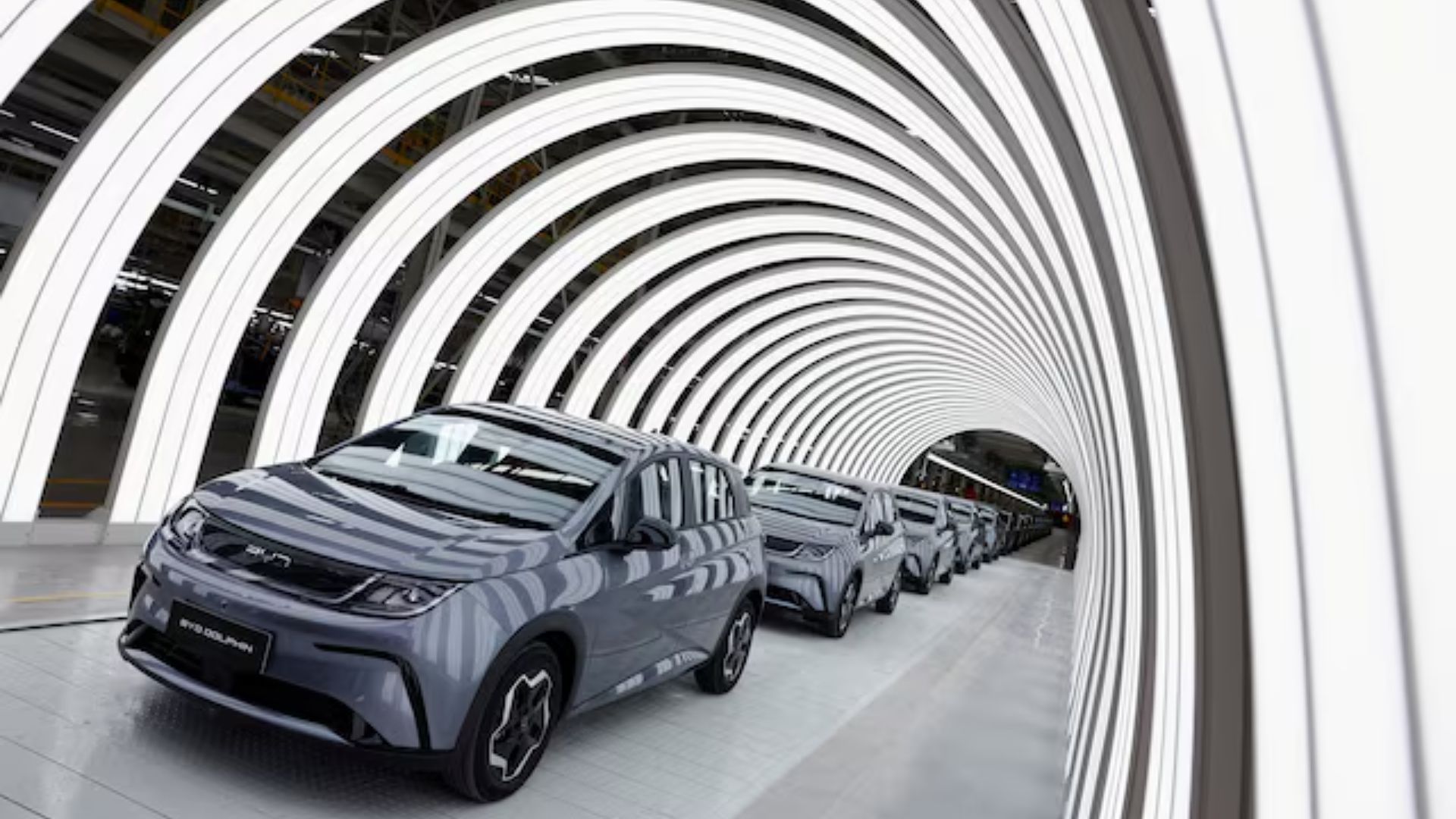Summary
- BMW CEO calls for a quick settlement between EU and China
- Mercedes-Benz calls tariffs a ‘mistake’
- Volkswagen calls for a negotiated solution
FRANKFURT, (Reuters) – Germany’s top carmakers on Friday urged Brussels and Beijing to avert looming tariffs on imports of Chinese-made electric vehicles through a negotiated deal, highlighting fears over what an escalating trade conflict will mean for business.
Earlier, the European Commission received enough support from EU member states to implement tariffs in a long-awaited vote pitting China-dependant economies such as Germany against member states with less exposure.
“Today’s vote is a fatal signal for the European automotive industry. What is needed now is a quick settlement between the EU Commission and China to prevent a trade conflict from which no one gains,” BMW CEO Oliver Zipse said.
Germany voted against the tariffs in Friday’s meeting, seeking to keep good business relations with China, the world’s biggest car market.
“The fact that Germany voted against the tariffs is an important signal and increases the chances for a negotiated settlement,” Zipse said.
German carmakers would be most exposed to potential counter-measures as trade data shows almost a third of their 2023 sales came from China. And while most vehicles sold in China are made locally, many top-end models are still imported from Germany.
“A trade conflict only knows losers,” said Hildegard Mueller, president of Germany’s car lobby VDA.
Mercedes-Benz, which counts China’s Beijing Automotive Group Co Ltd and Geely (GEELY.UL) Chair Li Shufu as its two top shareholders, said on Friday the tariffs were a “mistake”, urging the European Commission to delay their implementation to allow further talks about a deal.
Volkswagen, Europe’s top carmaker and majority owner of Porsche AG, also called on both sides to find a “political solution”, adding tariffs would not make Europe’s car sector more competitive.
The company said a deal was still possible until the decision is officially implemented at the end of October.
Reporting by Christoph Steitz; Editing by Matthias Williams and Mark Potter











